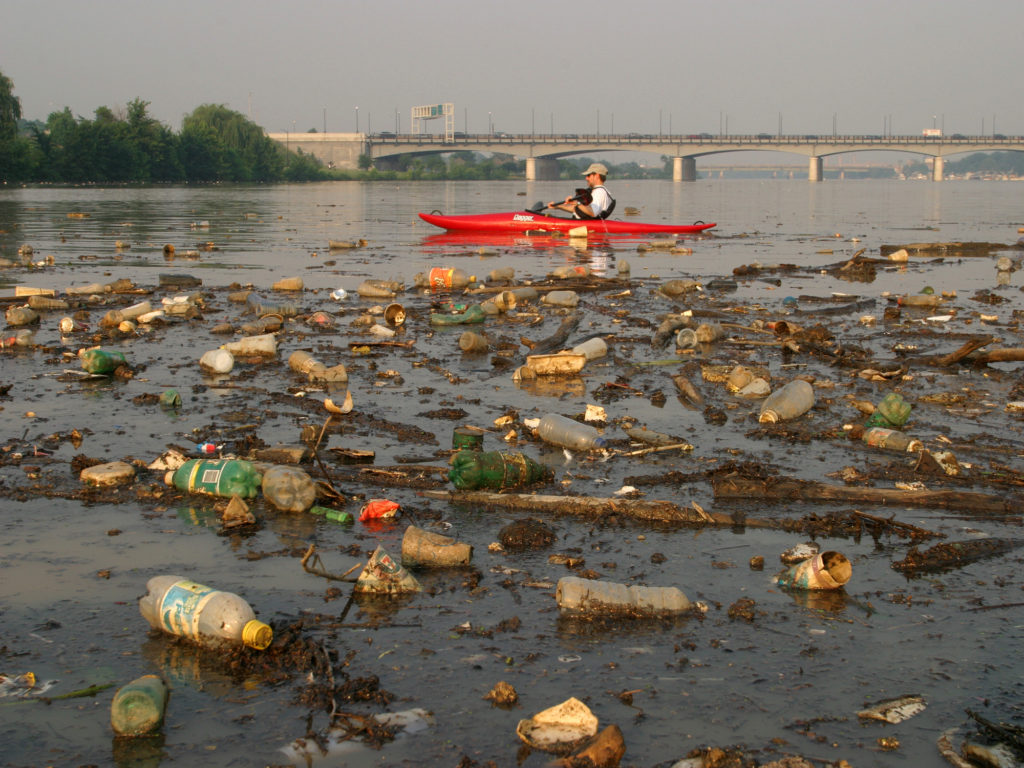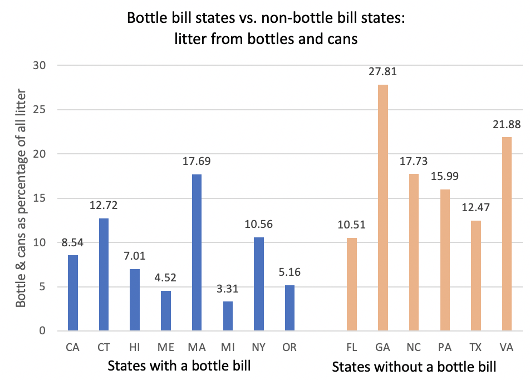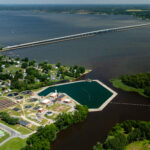How Virginia Can Reduce Plastic Pollution
Eradicating plastic pollution is a top priority for many Virginians. According to the 2022 Public Perception Survey on Plastic Pollution, Virginia voters…
We can tackle plastic pollution in Virginia by eliminating the most harmful types of mismanaged waste, incentivizing sustainable disposal of what we do end up using, increasing producer responsibility, and encouraging the shift to sustainable and reusable products.
A Plastic Pollution Crisis

Styrofoam is a known hazardous substance linked to various types of cancers. Toxic chemicals from styrofoam containers can leach into food and drinks and then be ingested, especially when the food or beverage is served hot.
We have a plastic pollution crisis. In Virginia, bottles and cans account for nearly 22% of all litter; 80% of debris in the oceans comes from land: mismanaged waste, litter, illegal dumping, and uncovered trucks (e.g., food-and-beverage-related items, cigarette butts and plastic grocery bags). Exposure to plastic additives harms our health and wildlife.
Our society produces single-use plastic items that are instantly discarded and end up in Virginia’s natural landscapes and waters. The unintended consequences of single-use plastics result in devastating impacts on wildlife, including important water-filtering oysters and mussels (See, “EXPEDITING THE OYSTER’S RECOVERY” & “PROTECTING & RESTORING VIRGINIA’S MUSSEL POPULATIONS”).
Historically disadvantaged communities and low-wealth areas are disproportionately affected by mismanaged waste. Abandoned and derelict vessels (ADVs) make navigational channels unsafe and pose negative financial impacts by diminishing commercial and recreational activities. Most are made by plastic material reinforced with glass fibers and often contain toxic chemicals, oils, and lubricants that contaminate our shorelines and waters, consequently poisoning our wildlife and destroying diverse habitats.
Our broken recycling system is insufficient in action, funding, and impact as it does not reduce single-use products nor does it hold producers responsible for the plastic pollution crisis.
Proven Solutions to Reducing Plastic Pollution
Producer Responsibility

Sharing responsibility between taxpayers/consumers and producers has these components. Graphic by Clean Fairfax.
Responsibility for litter clean ups, recycling, and waste disposal should be shifted from taxpayers to manufacturers. A producer responsibility program incentivizes manufacturers to decrease packaging, increase recycled content, and create recyclable, reusable, or biodegradable products.
More and more states have established product stewardship programs where manufacturers pay for recycling and waste reduction rather than taxpayers.
Beverage Container Deposits (a.k.a. “bottle bills”)

Refundable deposits on beverage bottles and cans lead to less litter from these items as shown in this chart that compares states with and without bottle bills. Graphic by Clean Virginia Waterways.
Compared to Virginia where bottles and cans account for nearly 22% of all litter, states with container deposits have significantly less. Beverage container deposits (“bottle bills”) incentivize consumers to return containers for recycling. These successful programs increase recycling while reducing litter, energy use, and greenhouse gas emissions.
We’ve Come a Long Way — But, There Is More Work to Do.
See our policy recommendations in Our Common Agenda Environmental Briefing Book to help Virginia reduce its plastic pollution waste.
Thank you to our Network Partners at Environment Virginia, Lynnhaven River NOW, Clean Fairfax, and Clean Virginia Waterways for providing expertise on these policy solutions.
3 Ways YOU Can Take Action to Reduce Plastic Pollution
Tune into “A Poison Like No Other: How Microplastics Corrupted Our Planet and Our Bodies” on Thursday, October 27th, 5-6 PM EST. The Plastic Pollution Coalition is hosting a webinar on microplastics and their harmful effects on our environment and our bodies.








